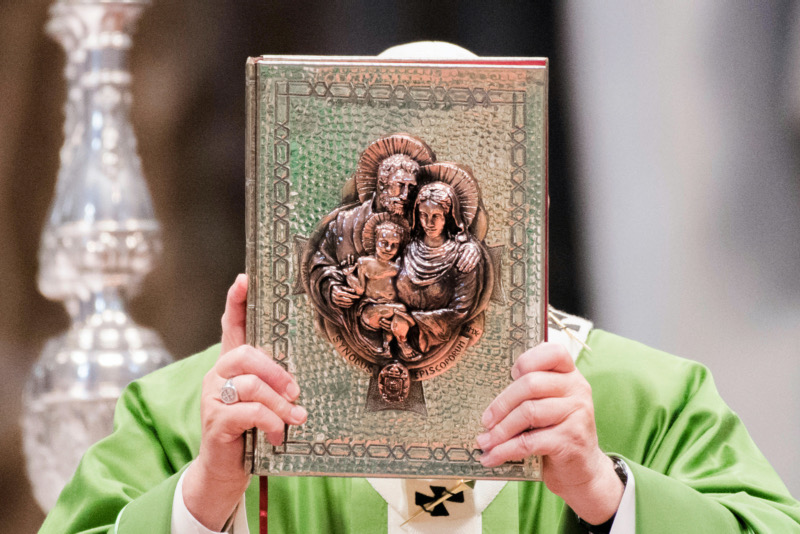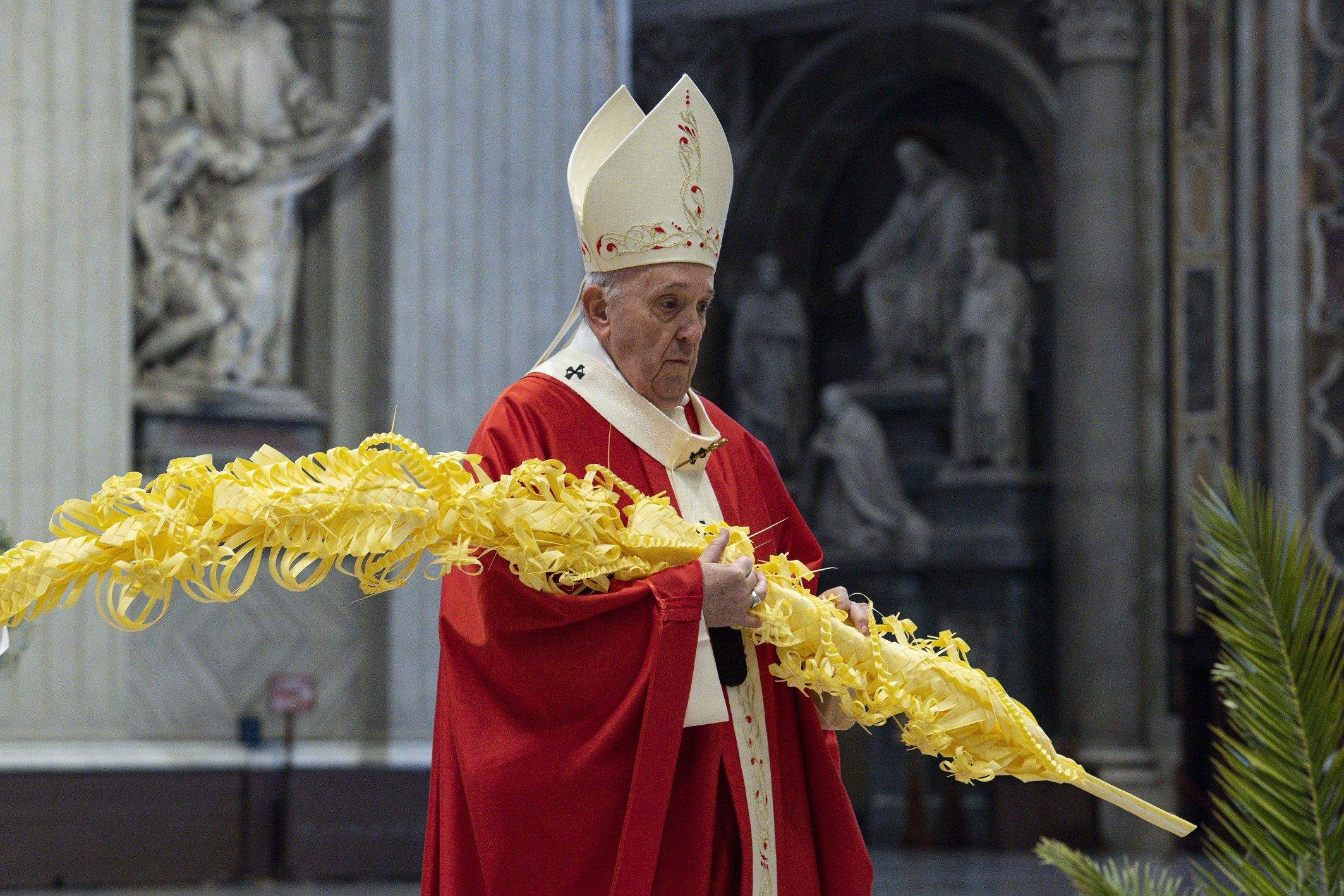“To admire Jesus is not enough,” said Pope Francis in his Palm Sunday homily yesterday.
Pope Francis celebrated the Palm Sunday mass in St Peter’s Basilica yesterday, marking the beginning of Holy Week, and called for a renewal and deepening of faith and humility in his homily:
“Admiration can be worldly, since it follows its own tastes and expectations. Amazement, on the other hand, remains open to others and to the newness they bring. Even today, there are many people who admire Jesus: he said beautiful things; he was filled with love and forgiveness; his example changed history, … and so on. They admire him, but their lives are not changed. To admire Jesus is not enough. We have to follow in his footsteps, to let ourselves be challenged by him; to pass from admiration to amazement.”
At a time of worldwide suffering due to disease, and particular difficulty for Christians hoping to celebrate Easter traditionally, the Pope chose to focus on the “humiliation” suffered by Christ, and the significance of a God who suffers alongside us:
“What is most amazing about the Lord and his Passover? It is the fact that he achieves glory through humiliation. He triumphs by accepting suffering and death, things that we, in our quest for admiration and success, would rather avoid. Jesus – as Saint Paul tells us – “emptied himself… he humbled himself” (Phil 2:7.8). This is the amazing thing: to see the Almighty reduced to nothing. To see the Word who knows all things teach us in silence from the height of the cross. To see the king of kings enthroned on a gibbet. Seeing the God of the universe stripped of everything and crowned with thorns instead of glory. To see the One who is goodness personified, insulted and beaten. Why all this humiliation? Why, Lord, did you wish to endure all this?
“Jesus did it for us, to plumb the depths of our human experience, our entire existence, all our evil. To draw near to us and not abandon us in our suffering and our death. To redeem us, to save us. Jesus was lifted high on the cross in order to descend to the abyss of our suffering. He experienced our deepest sorrows: failure, loss of everything, betrayal by a friend, even abandonment by God. By experiencing in the flesh our deepest struggles and conflicts, he redeemed and transformed them. His love draws close to our frailty; it touches the very things of which we are most ashamed. Yet now we know that we are not alone: God is at our side in every affliction, in every fear; no evil, no sin will ever have the final word. God triumphs, but the palm of victory passes through the wood of the cross. For the palm and the cross are inseparable.”
Pope Francis also acknowledged the difficulties of the present moment his Palm Sunday Angelus, speaking of the “economic crisis” and the “pandemic”, and praying for “the victims of violence, in particular the victims of this morning's attack in Indonesia, in front of the Cathedral of Makassar.”
The Pope looked to the Virgin as a source of solace, naming Mary Jesus’ “first disciple” and speaking of her central role in the way of the cross: “She followed her Son. She took upon herself her own portion of suffering, of darkness, of confusion, and she walked the way of the passion keeping the lamp of faith lit in her heart. With God’s grace, we too can make that journey. And, along the daily way of the cross, we meet the faces of so many brothers and sisters in difficulty: let us not pass by, let us allow our hearts to be moved with compassion, and let us draw near.”
In England Cardinal Vincent Nichols echoed the Pope’s sentiments, looking to “the painful path of Jesus” and how Christ’s suffering can make sense of our own hardships: “If the suffering of Jesus, which we contemplate today, is neither random nor pointless, neither is the suffering that comes our way.
“Far from simply robbing us of independence, making us rely on others, far from simply inflicting pain and distress, our own share of suffering, whatever it may be, can prepare us to receive far greater gifts than those we lose. When we follow in the footsteps of Jesus our eyes are opened to see beyond the grave and to live in the light of that far greater hope of eternal life and the glory of God. This is the 'lifting up' which matches our deepest longing. This is the purpose for which we have been created. This 'lifting up' is higher than the back of a donkey, higher than the driving seat of an SUV, higher than fleeting fame, higher even than a solid and rewarding family life.”



 Loading ...
Loading ...